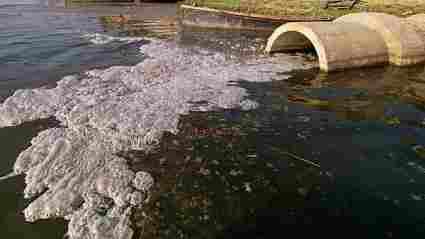The Union Minister of State for Science & Technology, Jitendra Singh, announced today that the Government is actively exploring the potential of Bus Roof Mounted Air Purification Systems (BRMAPS) to tackle the problem of Particulate Matter in highly polluted cities.
Responding to a query in the Rajya Sabha, Dr. Jitendra Singh revealed that the Central Pollution Control Board (CPCB), which operates under the Ministry of Environment, Forest and Climate Change (MoEFCC), has already installed Pariyayantra Filtration units on 30 buses in Delhi-NCR. These filtration units aim to effectively filter dust and pollutants from the air.
Additionally, the CPCB has conducted pilot trials of various cutting-edge technologies, in collaboration with premier institutions, to manage and improve air quality in Delhi-NCR. Among these trials was the deployment and evaluation of Wind Augmentation and Purifying (WAYU) units at traffic junctions in Delhi. Fifty-four WAYU units were installed at five traffic intersections, including ITO, Anand Vihar, Shadipur, Wazirpur Chowk, and Bhikaji Cama Place, with the goal of reducing air pollution levels.
Moreover, the CPCB carried out a pilot study on controlling dust emissions using dust suppressants, employing calcium/magnesium salts and bio additives, at three sites: Sarai Kale Khan Road, DDA construction site at Narela, and Dilshad Garden flyover to Shaheed Nagar metro station. This study aimed to evaluate the effectiveness of these suppressants in curbing dust emissions.
Furthermore, the CPCB installed a negative ion generator at IIT Delhi’s Sonipat campus to assess the impact of generated Negative Air Ions (NAIs) on ambient air quality.
The Government also took on two experimental pilot projects of smog towers—one at Anand Vihar by the Central Government and another at Connaught Place by the Delhi Government—to address the problem of particulate air pollution.
Dr. Jitendra Singh mentioned that the Council of Scientific and Industrial Research – Central Electrochemical Research Institute (CSIR-CECRI) in Karaikudi and CSIR-National Environmental Engineering Research Institute (CSIR-NEERI) in Nagpur are actively involved in research and development (R&D) initiatives to tackle air pollution in six cities: Chennai, Delhi, Hyderabad, Kolkata, and Mumbai.
Additionally, the Department of Science and Technology (DST) provided support for a Research & Development (R&D) project aimed at developing an indigenous photonic system for real-time remote monitoring of air quality parameters. This initiative aims to further enhance the monitoring and understanding of air quality in the country.
- PIB







